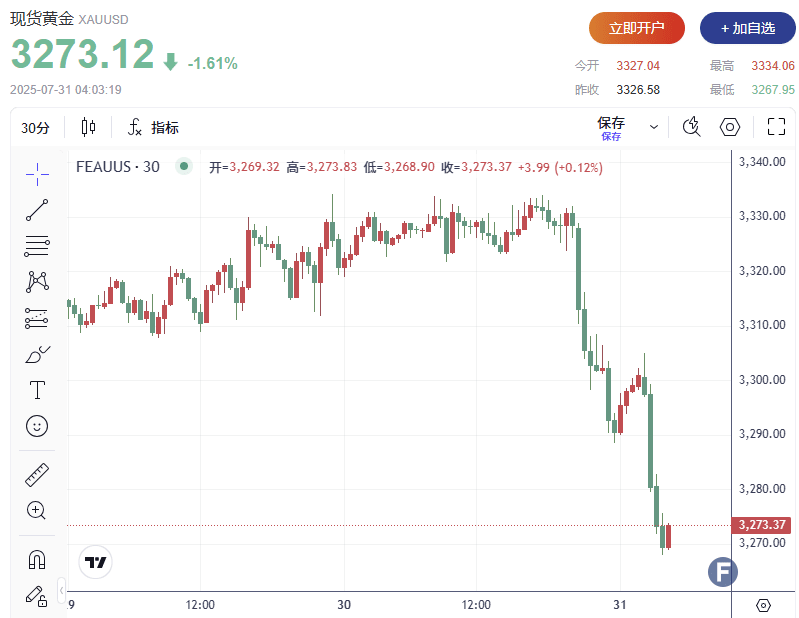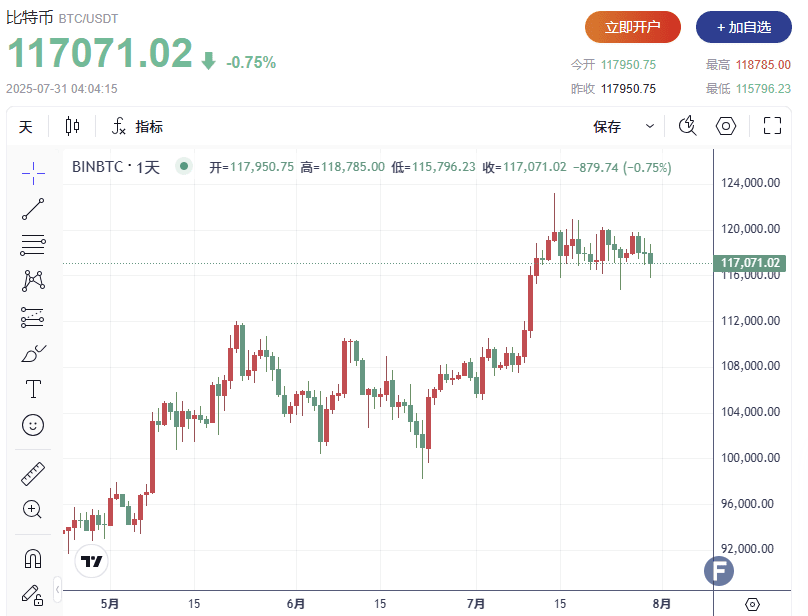On Wednesday (July 30), the Fed maintained rates for the fifth consecutive meeting, despite ongoing pressure from President Donald Trump and White House officials. Internally, there was a rare situation where two governors opposed the decision, highlighting the growing divisions over the impact of Trump's tariff policies.
At this meeting, the Fed kept the federal funds rate benchmark unchanged in the range of 4.25%-4.5%, consistent with the policy since 2025. Last fall, the Fed had cumulatively cut rates by 100 basis points.
However, Fed governors Christopher Waller and Michelle Bowman cast dissenting votes in support of a further rate cut of 25 basis points, marking the first time since Alan Greenspan's era in 1993 that two governors collectively opposed the majority decision in a single meeting.
Chairman Powell did not signal a rate cut during the press conference regarding the next monetary policy meeting on September 16-17, merely stating, "No decisions have been made regarding September," and noted that "a lot of data will be assessed in the coming months."
Powell also pointed out that despite Trump's request to significantly lower rates by 3 percentage points to reduce U.S. debt interest costs and stimulate the housing market, the Fed will still focus on observing the long-term effects of tariffs on inflation paths and economic resilience.
When talking about the two dissenting governors, Powell stated, "We heard their clear logic today. It was a very good meeting around the table."
Powell reiterated that inflation remains one of the Fed's core concerns. He stated, "If actions are taken too early, they may not fully resolve the inflation issue; if taken too late, they may unnecessarily harm the labor market."
Powell added, "Ultimately, we must firmly control inflation, there is no doubt about that."
During Powell's speech, market expectations for a Fed rate cut in September dropped to 47%.
Market reaction
During Powell's speech, the dollar rose, and gold's daily decline expanded to $50.

Bitcoin once fell below $116,000.

Policy divergences are widening, with Bowman and Waller's views diverging.
Waller has long advocated to "ignore the one-time price shocks caused by tariffs" and shift the policy focus towards full employment. He claims his position is "not politically motivated," but it indeed aligns with the White House's stance. Nominated by Trump, Waller is seen as one of the potential successors after Powell's term ends in May next year.
Bowman, also appointed by Trump, stated that the impact of tariffs on inflation is limited, while the downside risks to the labor market are increasing. She opposed significant rate cuts last September, arguing that inflation had not been effectively controlled, indicating an important shift in her stance this time.
This also marks the first time since 1993 that two Fed governors voted against easing policies at a single meeting, following the collective opposition of Wayne Angell and Lawrence Lindsey.
In the 61 meetings that Powell has presided over in the past, there were only 16 instances of dissent, 14 of which came from regional Fed presidents and only 2 from board members.
With tensions with the White House escalating, the "$250 million renovation cost" has become a new powder keg.
The decision to keep rates unchanged is bound to exacerbate tensions between the Fed and the White House. Recently, the White House has used the Fed's $2.5 billion renovation project to question Powell's management capabilities.
Although Trump visited the construction site last week and claimed, "This visit was just to help push the project to completion," and stated, "I don't want to make it personal," he also admitted in an interview that "removing Powell is not out of the question."
When asked about Trump's site visit, Powell described it as a "very nice visit" and said, "It was an honor to host the president." As for whether this was a form of pressure, Powell responded, "That's not for me to comment on."
Congressional Republicans are also stepping up efforts, challenging the Fed's independence.
Republican members of Congress are also continually pressuring Powell. Florida Congresswoman Anna Paulina Luna has requested the Justice Department to launch a "perjury investigation" into Powell's congressional testimony regarding the renovation project, although this proposal is widely seen as having "little hope."
More significantly, House Speaker Mike Johnson recently expressed his "great disappointment" with Powell in a Bloomberg interview, stating his willingness to revisit the Federal Reserve Act of 1913, which is the legislative foundation of the Fed.
Treasurer Scott Bessent also publicly called for a "comprehensive internal review" of the Fed, suggesting it could become part of Powell's "political legacy," while accusing the Fed of "overreaching" in its non-monetary functions.
Trump expressed support for this proposal. Some analysts believe that if related actions gain political momentum, it would be one of the most disruptive adjustments to the Fed's operations in decades.
When asked whether Trump's continued pressure could undermine the Fed's independence, Powell firmly stated, "The independence of the central bank is an institutional arrangement that has served the public well for many years. As long as we continue to serve the public interest, it should be respected."
He emphasized that this arrangement allows the nation to "rely on data rather than political factors" when facing difficult decisions, stating that "there is a broad understanding of this within Congress."
As for whether he will choose to step down from the board after his term ends in May next year, Powell did not respond directly, stating only, "I have no updates for now."
